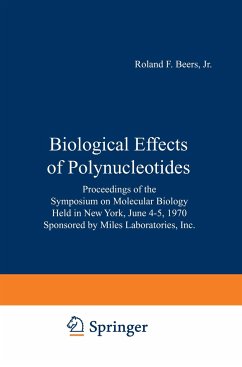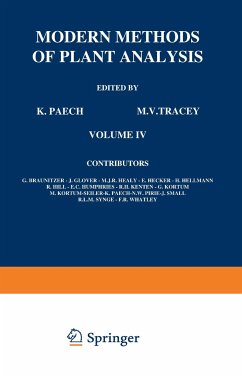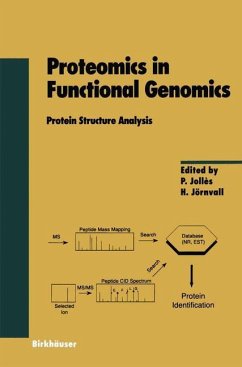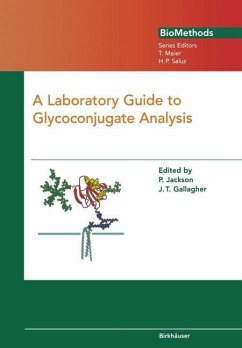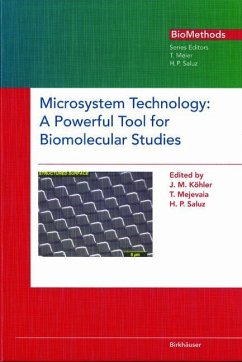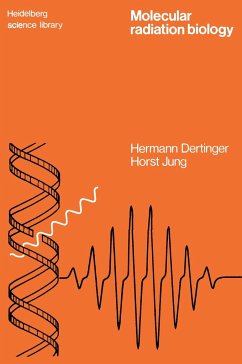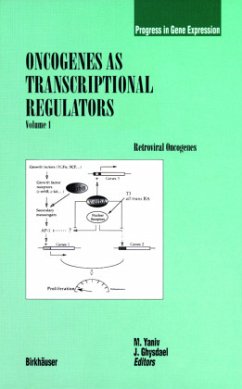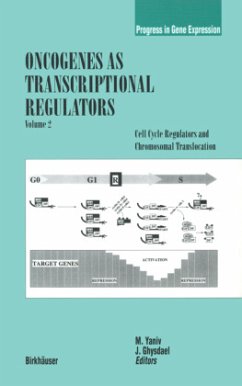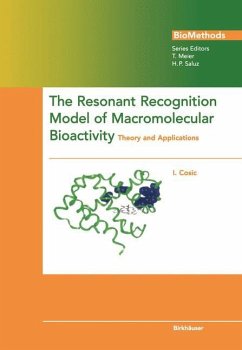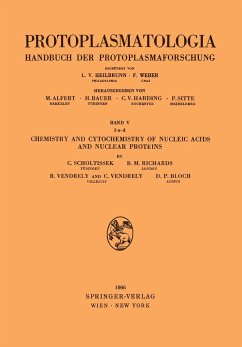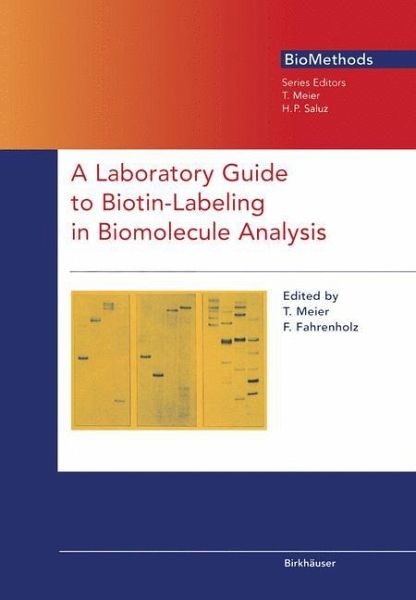
A Laboratory Guide to Biotin-Labeling in Biomolecule Analysis

PAYBACK Punkte
19 °P sammeln!
2.1 Introduction ........................................................... 32 2.2 Technical Procedures ................................................... 32 Chemical Synthesis ..................................................... 35 2.3 Results and Discussion. . . . . . . . . . . . . . . . . . . . . . . . . . . . . . . . . .. . . 38 . . . . . . . . . . . . . Chemical Synthesis ..................................................... 38 Binding to anti-CCK antisera and CCK-B receptors .......................... 40 Binding to streptavidin agarose and photoelution ........................... 40 A...
2.1 Introduction ........................................................... 32 2.2 Technical Procedures ................................................... 32 Chemical Synthesis ..................................................... 35 2.3 Results and Discussion. . . . . . . . . . . . . . . . . . . . . . . . . . . . . . . . . .. . . 38 . . . . . . . . . . . . . Chemical Synthesis ..................................................... 38 Binding to anti-CCK antisera and CCK-B receptors .......................... 40 Binding to streptavidin agarose and photoelution ........................... 40 Affinity chromatography ................................................. 41 2.4 Troubleshooting....................................................... 43 References . . . . . . . . . . . . . . . . . . . . . . . . . . . . . . . . . . . . . . . .. . . 44 . . . . . . . . . . . . . . . . . Purification of the Receptor for Pituitary Adenylate Cyclase-Activating Polypeptide (PACAP) using Biotinylated Ligands ......................... 45 Summary ............................................................. 45 3.1 Introduction . . . . . . . . . . . . . . . . . . . . . . . . . . . . . . . . . . . . . . . .. . 46 . . . . . . . . . . . . . . . . . 3.2 Technical Procedures ................................................... 48 Preparation of a Biotinylated Ligand ...................................... 48 Preparation of Membrane Fraction ........................................ 50 Solubilization of the PACAP Receptor ..................................... 51 Partial Purification of the PACAP Receptor ................................. 52 Affinity Purification of the PACAP Receptor ................................ 54 Final Purification of the PACAP Receptor .................................. 56 Receptor-Binding Assay ................................................. 57 3.3 Results and Discussion. . . . . . . . . . . . . . . . . . . . . . . . . . . . . . . . . .. . . 58 . . . . . . .. . . . . . 3.4 Troubleshooting ....................................................... 61 Impurity in PACAP27-Cys-NH............................................ 61 2 Low specific activity of the PACAP receptor despite a single band ............. 62 Acknowledgments ..................................................... 62 References . . . . . . . . . . . . . . . . . . . . . . . . . . . . . . . . . . . . . . . .. . . 63 . . . . . . . . . . . . . . . . . Photoreactive Biotinylated Peptide Ligands for Affinity Labeling ......... " 65 Summary ............................................................. 65 4.1 Introduction................................................ . . . . . . . .. . 66 . 4.2 Technical Procedures ................................................. " 67 Synthesis of a trifunctional photoactivatable biotinylating reagent ............. 67 Synthesis of photo reactive biotinylated peptide hormones ................... 67 Site-specific incorporation of biotin and photo labels in separate steps ........ 69 Photoaffinity labeling ................................................... 72 4.3 Results and Discussion .................................................. 76 Synthesis of photoactivatable insulins with permanent biotin labels ............ 76 Applications: Insulin .................................................... 78 VI Examples for other applications .......................................... 78 4.4 Troubleshooting....................................................... 79 References . . . . . . . . . . . . . . . . . . . . . . . . . . . . . . . . . . . . . . . . . 81 . . . . . . . . . . . . . . . . . . .





